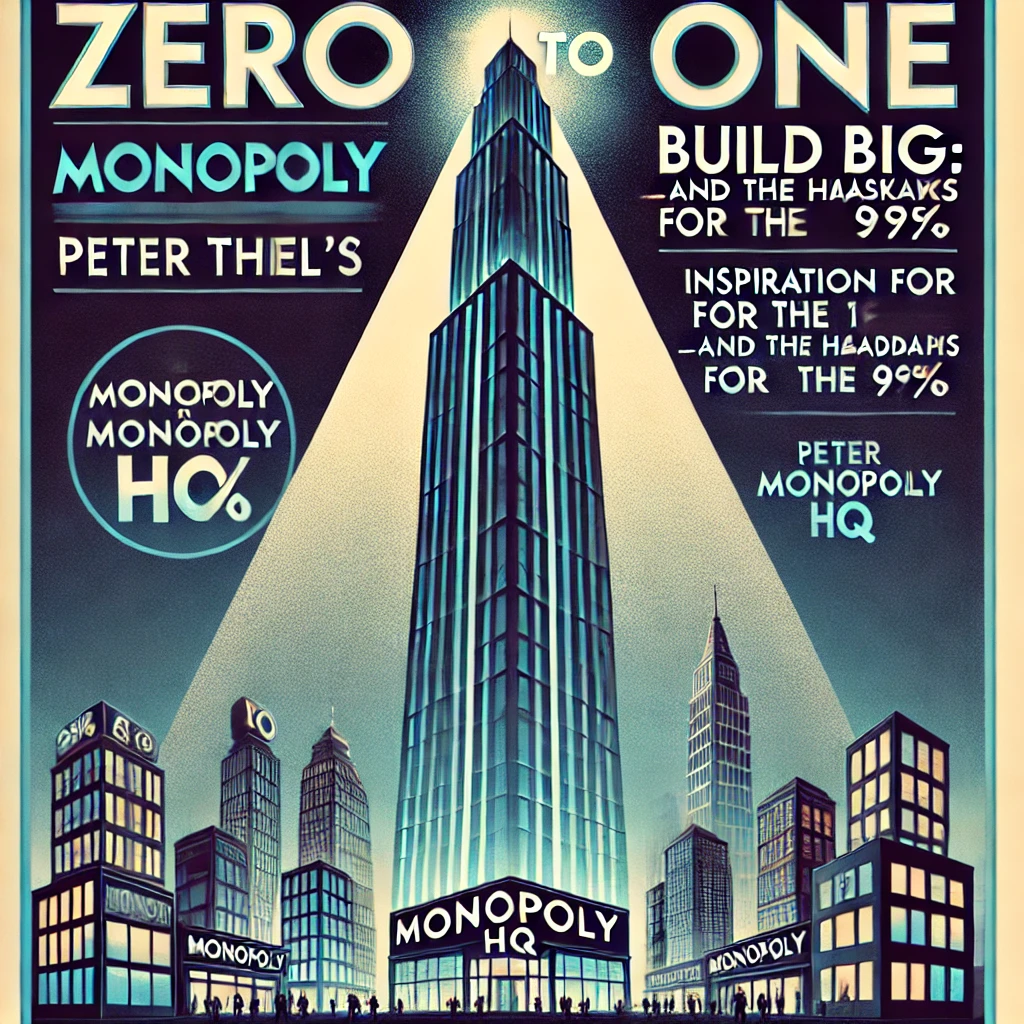Oh, Peter Thiel, you sly fox of innovation. You’ve written a book that’s half manifesto, half love letter to monopolies, and fully convinced of its own genius. Zero to One is the kind of book that will either make you want to build the next Google or throw it at the nearest wall because it forgot people exist outside of Silicon Valley.
Let’s start with the strengths. Thiel’s core message create something entirely new instead of copying what already exists is genuinely inspiring. He’s right; the world doesn’t need another social media app that just adds more filters to your selfies. And his disdain for aimless competition? Chef’s kiss. Competing for the same scraps in a crowded market is like fighting over who gets the last stale biscuit at a party. Why not bake a whole new cake instead? Thiel’s emphasis on bold, visionary thinking is solid gold for anyone tired of mediocrity.
But then we get to his monopoly love affair. According to Thiel, monopolies are the holy grail of innovation because they’re efficient, profitable, and apparently have no downside. Excuse me, Peter, but have you met Amazon or Meta? Monopolies aren’t exactly known for playing nice. Sure, they innovate at first, but then they turn into overlords, hoarding resources, dodging taxes, and stomping on competition like Godzilla in a tech startup incubator. The idea that monopolies are inherently good for society is like saying dictatorships are great because they reduce the number of arguments. Neat in theory; horrifying in practice.
And can we talk about this “definite optimism” thing? Thiel’s big advice is to have a grand, definite plan for the future. Cute idea, Peter, but the universe runs on chaos, not five-year plans. Have you seen how quickly the world changes? A pandemic hits, an app goes viral, the next shiny thing grabs everyone’s attention and suddenly your “definite plan” is about as relevant as MySpace. Flexibility, Peter. It’s a thing. Look it up.
Then there’s his obsession with “secrets.” Thiel urges us to uncover hidden truths about the world and build businesses around them. Nice sentiment, except he delivers it like he’s handing us a treasure map to Atlantis. “Find the secret no one else sees!” Great, but where’s the actual guidance? Not all of us have billionaire intuition or a Rolodex full of genius-level coders ready to help us unearth the next great tech revolution. For most of us, “secrets” aren’t a mystical concept they’re just things rich people already know.
Here’s the kicker, Thiel’s vision for the world, as laid out in Zero to One, works beautifully if your goal is to create massive wealth and influence for a select few. But if you, like me, dream of a world that prioritizes balance, fairness, and collective growth, this book feels like it’s written in a language only one percent of the population understands. It celebrates bold innovation but largely ignores the human cost of monopolies, unchecked ambition, and systems built to benefit the few at the expense of the many.
That said, there’s a lot to take away from this book. Thiel’s call to think big, take risks, and avoid copying the status quo is a rallying cry for anyone tired of mediocrity. Just don’t drink the Kool-Aid when he starts waxing poetic about how great monopolies are or how definite plans will save the day. Instead, take his advice, flip it upside down, and use it to build something that benefits everyone, not just the Peter Thiels of the world.
In conclusion: Zero to One is a brilliant, maddening, thought-provoking manifesto that will either inspire you to change the world or remind you why it desperately needs changing. Your call.
